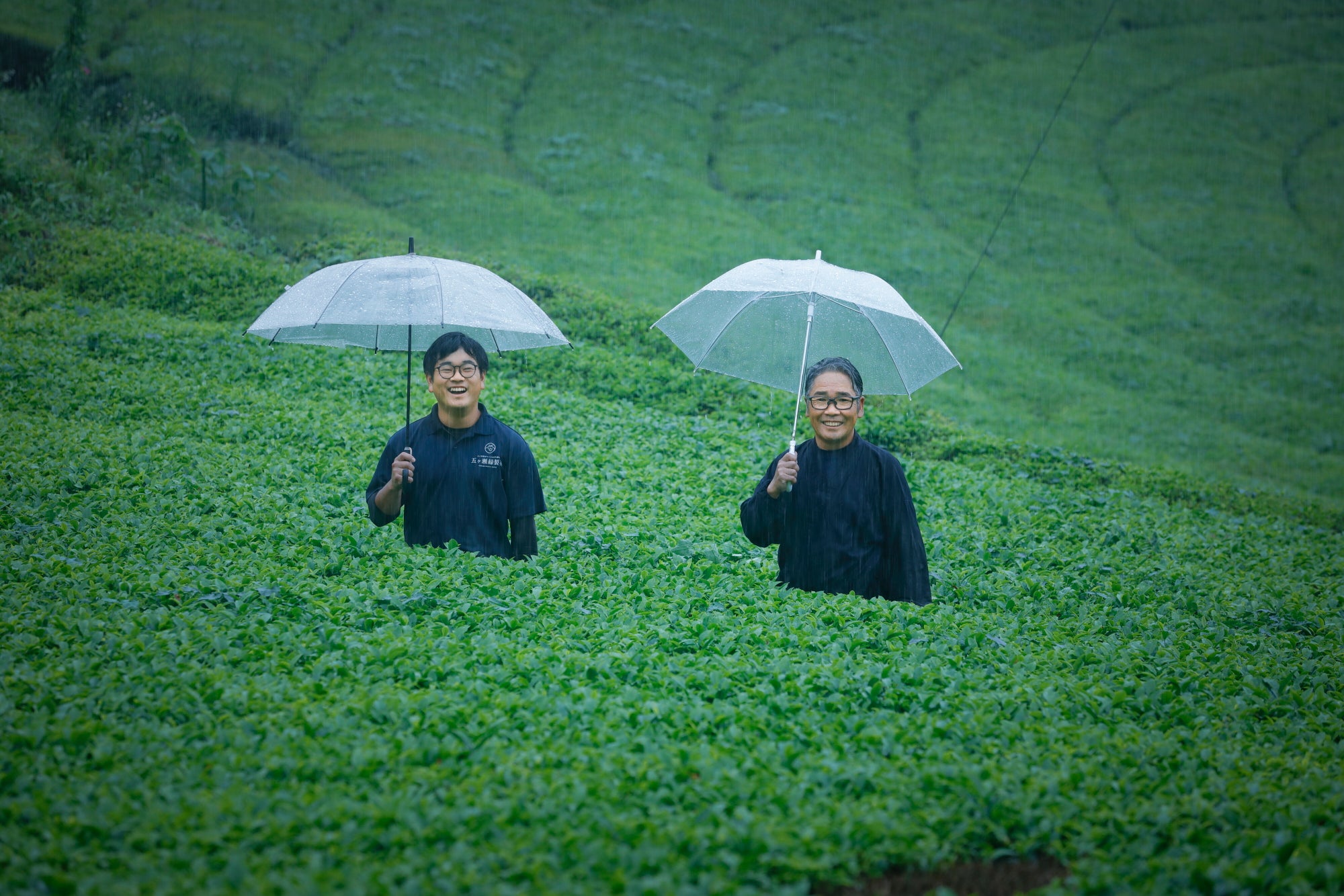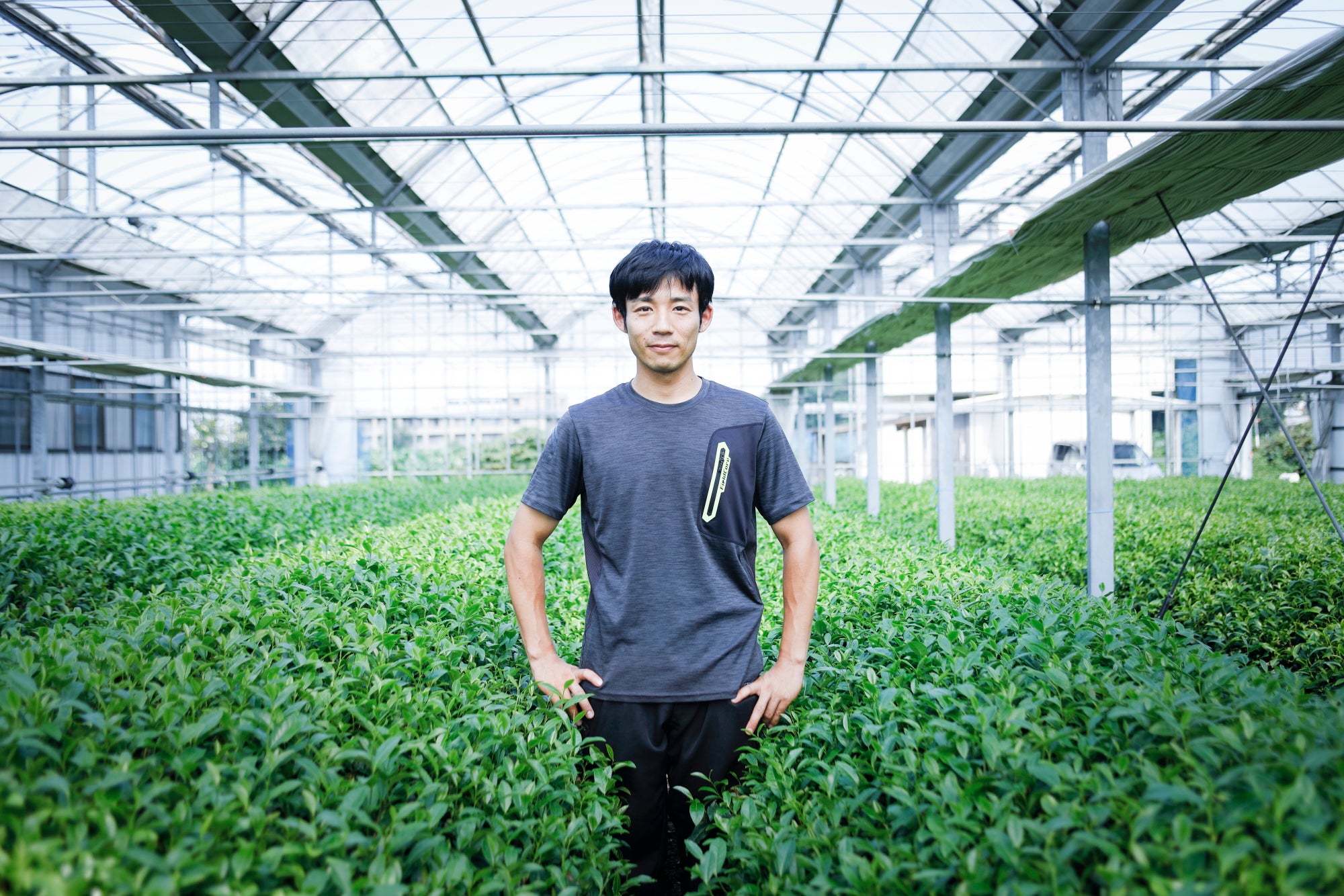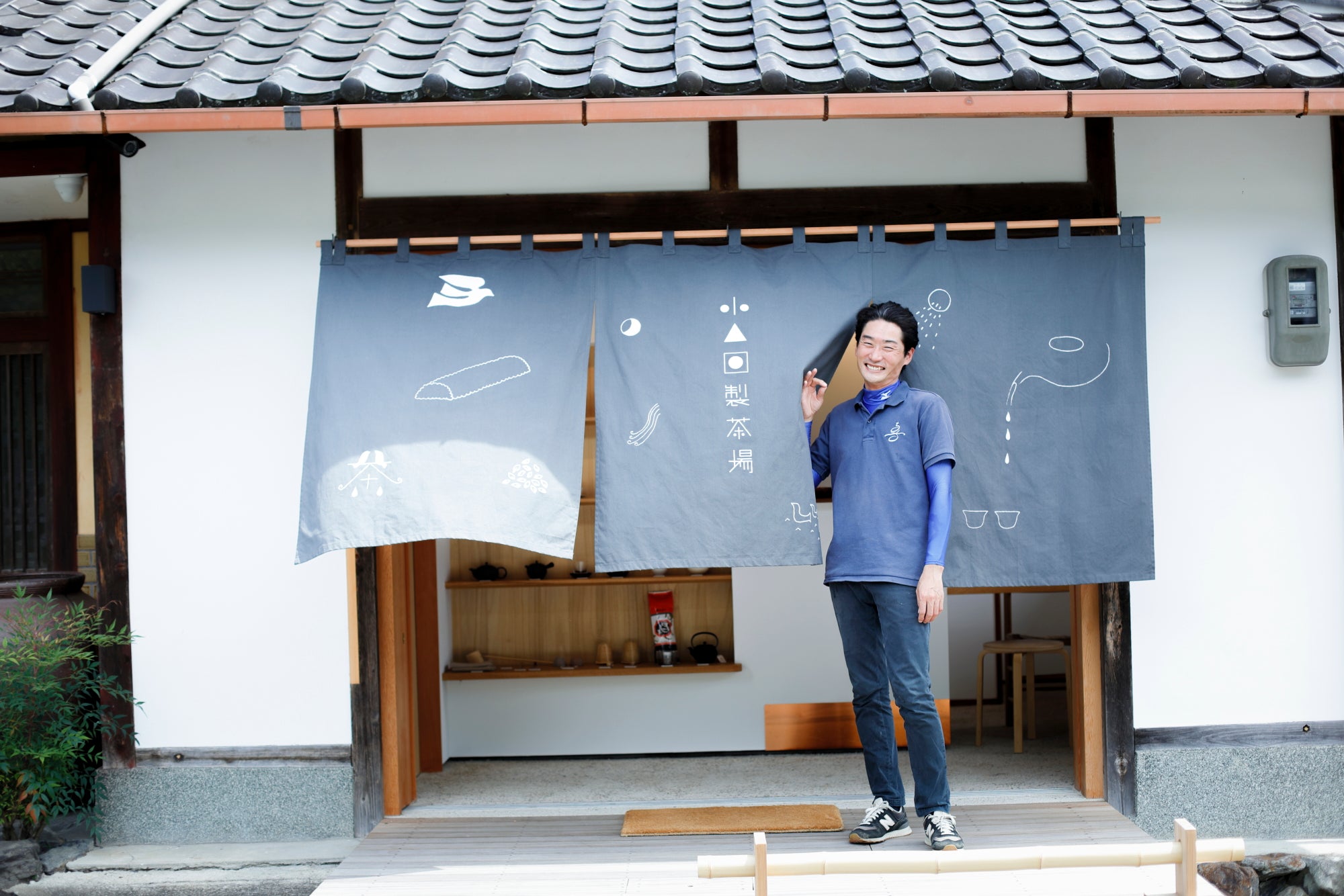A Flagship Tea Grown by Umami Obsessives.Unique methods hit upon through trial and error are used to bring out umami.
The Origin
Yame City, Fukuoka
Japan is made up of four major islands. Kyushu is the name of the island located in the southwestern part of the country, and it is home to Fukuoka Prefecture, the most populous prefecture in the region. In the rolling hills near the center of Yame, beautiful tea farms sprawl all through the area, attracting visitors and tourists with its breathtaking view.
The Tea Farmer

Atsushi Gōda
Majored in space engineering at Kyushu's leading technical university. After graduation, he took over as the fifth generation of his family to manage Gōda Seicha, which has been in operation since the Meiji era in the late 19th century. Managing the entire process, from growing tea leaves to packaging, at his tea farm, unique flavors are created through his inquisitive attitude and uncompromising craftsmanship.
The Tea
Okumidori
Okumidori, produced by Gōda Seicha, is characterized by more flavorful tea leaves and a stronger sweetness than conventional okumidori tea varieties. Its strongly distinctive flavor is one-of-a-kind. It is achieved through a fully integrated process from soil cultivation to the packaging despite the industry standard practice of outsourcing parts of the development.


The color of the tea and steeped tea leaves.

Tea leaves prior to brewing
This is the appearance of wab_sab_ tea. These visual images only tell half the story - imagining what it will taste like is also a space to be filled by the person brewing the tea. By looking at the tea leaves prior to brewing, then from the first to third infusions, and seeing how these leaves gradually open up, one can try to imagine the taste and flavor of this tea. It is ultimately something to be experienced first hand, and not something that can be found on the web.
First infusion

Second infusion

Third infusion

The Environment
A major production area of tea with sprawling tea farms
Yame, located in the southwestern part of Fukuoka Prefecture, is famous throughout Japan as a place where tea was introduced in the 15th century and tea cultivation has been flourishing since ancient times. Yame, known for the cultivation of high-quality tea leaves, is also a production center for a high-grade green tea called Gyokuro.

Learn more about Yame
400 years of history
Yame was founded as a castle town in the early Edo period (1603-1868). Many of the wooden and mud-walled streets that existed in various parts of Japan were either rebuilt due to modernization that followed in the twentieth century, or destroyed due to natural disasters or air raids during World War II. However, in Yame, many streets with architecture from the late nineteenth century has remained.

Growing tea
Pouring everything to create the ideal tea.
Their goal is to create a tea with a strong flavor and a hint of sweetness. The flavor and sweetness are absorbed from the soil. So, tea needs to be grown in soil that has a lot of flavor. What they came up with was using something that is a part of Japanese daily diet, dried bonito flakes. The bonito is caught in Makurazaki, Kagoshima Prefecture. They sprinkle the freshly caught Bonito onto the tea fields.

Processing factories
A tale of two factories
Two factories stand right next to Gōda-san's home: one is new and it is where the tea is processed today. The other is an old structure built 75 years ago. The building with its magnificent natural beams was handcrafted by his great-grandfather, who felled the timber from a mountain forest nearby.

See this person’s product
Read stories from other farmers

Gokase Midori Tea Farm
Gokase Town, Miyazaki
Native Organic Varieties. Authentic kama-roasted tea for future generations by leveraging nature to its fullest.

Yokota Tea Farm
Sayama City, Saitama
Unbounded Urban Tea. Cultivation methods are given free reign to enhance the unique flavors of 17 single-origin tea varieties.

Koyama Tea Farm
Ujitawara Town, Kyoto
Sustainable Tea Farming. Do no harm to people or nature.
A sustainable environment keeps tea traditions alive.








